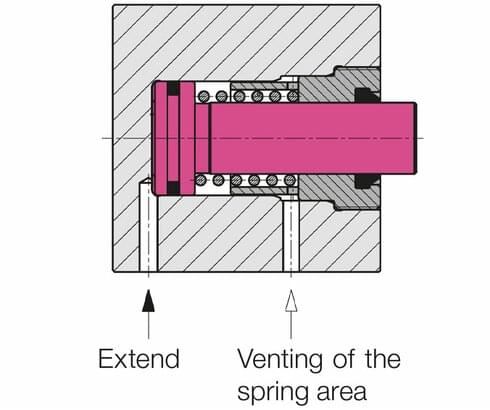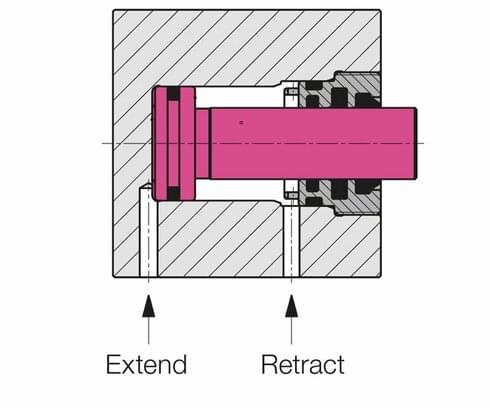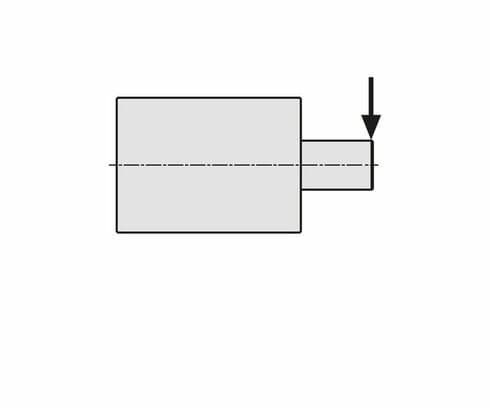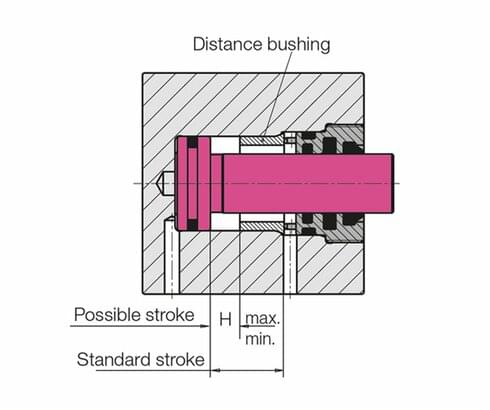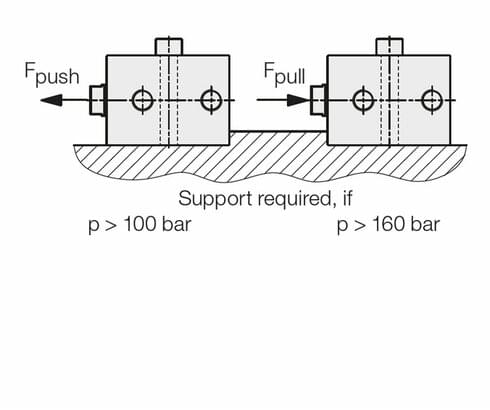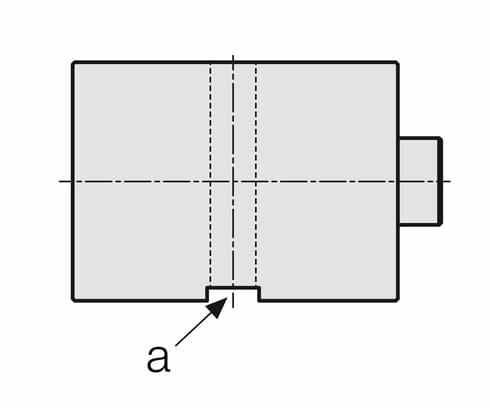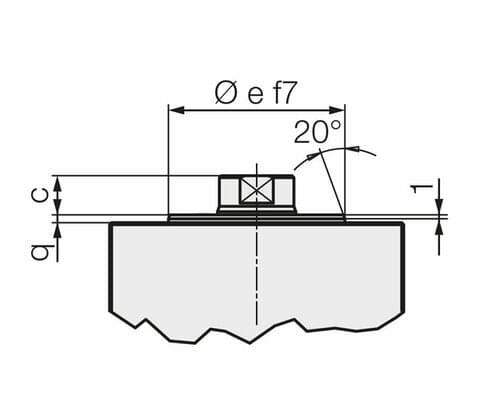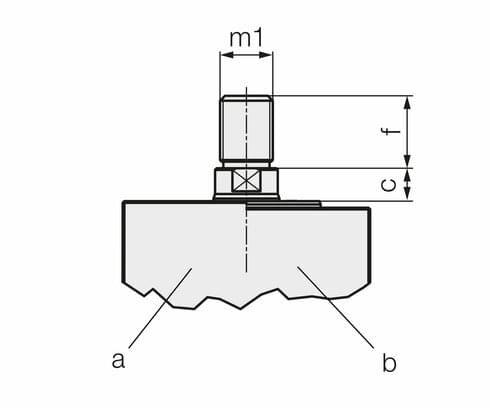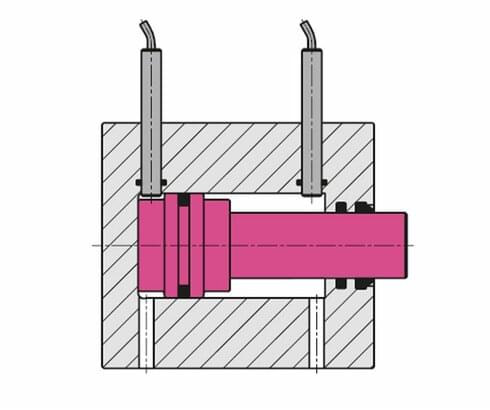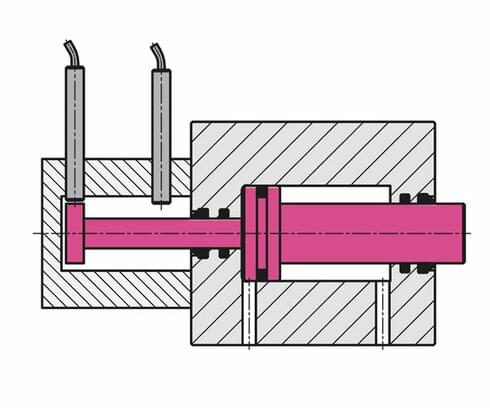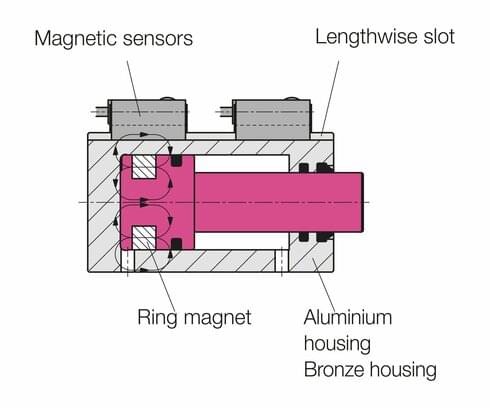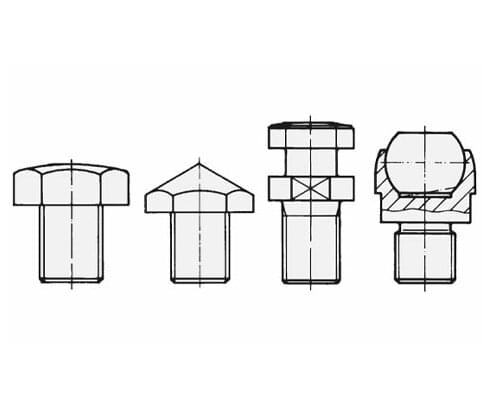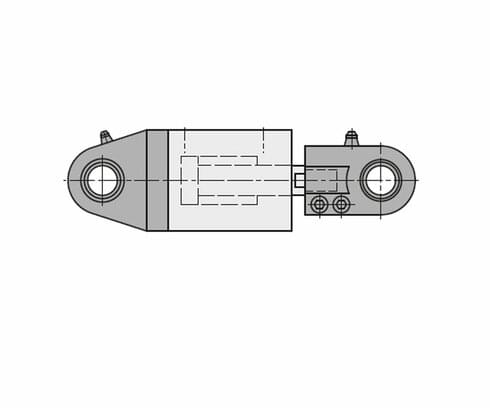Block cylinders (10)
For all hydraulically operated linear movements.
The hydraulic force acts only in one axial direction.
The return stroke is effected by spring force or by external forces.
Venting of the spring area
If there is any danger that fluids penetrate through the sintered metal air filter into the
spring area, a vent hose has to be connected and be placed in a protected position
(see data sheet G 0.110).
The hydraulic forces act in both axial directions, whereby the force to push is always higher than the force to pull. The double-acting block cylinder has a high functional safety with exactly calculable rimes required for the stroke.
The table values of 0.25 m/s and 0.50 m/s are based on data provided by the seal manufacturers. Apart from two exceptions, the block cylinders have no stroke end cushioning. To avoid damage, the piston should not move at this speed against the internal piston stops without braking.
Admissible piston side load
If the piston rod is loaded with a side load, higher wear must be expected. For strokes
up to 50 mm, the side load should not be higher than 3 % of the max. piston push force.
The block cylinder S and the hydraulic block cylinder are equipped with high-quality guide rings. The admissible side load can be taken from the diagrams on the data sheets.
Seals and max. operating temperature
The data in the chart ar approximate values:
- NBR = Nitril-Butadien-Rubber
Trade name e.g. Perbunan
Temperature range – 30 … + 100 °C - FKM = fluoro rubber
Trade name e.g. VITON®
Temperature range – 20 … + 200 °C
More detailed information, taking into account the common hydraulic fluids, can be found on data sheet A 0.100.
5 sealing packages are available for the block cylinder S. It can thus be optimally adapted
to pressure, temperature and hydraulic fluid.
Leakage
Block cylinders do not leak oil when static. When extending the piston rod, the double
sealing lets pass only a micro-oil film to ensure the required lubrication of the seals and
thus a high service life.
Stroke limitation by distance bushing
Extending of the piston can be limited by the installation of a distance bushing. The minimum stroke shortening is between 3 and 8 mm, depending on the size, and the smallest possible stroke between 1 and 10 mm.
Fixation
All block cylinders can be fixed with screws of tensile strength 8.8. When fastened across the cylinder axis, block cylinders must be supported depending on the operating pressure.
Options Housings and pistons
Housing with keyway
If the necessary support on the bottom or rod side is not possible, the cylinder housings can be provided with a keyway.
Housing with centring collar
Available for block cylinder S and hydraulic block cylinder.
Piston materials
Case-hardening steel, hardened
High alloy steel, nitrated or chromium-plated
Piston with external thread
Available as variant or special version.
Piston with stroke end cushioning
The damping effect can be adjusted for block cylinder with stroke end cushioning and hydraulic block cylinders.
Stroke end control
These block cylinders are equipped with pressure-resistant proximity switches. They are adjustable in the range from 1 – 4 mm before the end position.
Position monitoring complete
Is mounted to the cylinder bottom of block cylinders with extended piston rod.
The inductive proximity switches are movable and can monitor the complete piston stroke.
Observe minimum distance between adjacent switching points as per data sheet.
Position monitoring with magnetic sensors
Magnetic sensors are mounted to block cylinders with aluminium or bronze housings in
a trapezoidal slot and can be moved over the entire piston stroke.
Minimum distance of the switching points approx. 6 mm.
Fittings
Screwed plug with elastic sealing as per DIN 3852 T11 form E and EN ISO 1179-2
Mounting position
any, if not otherwise stated.
Contact bolts and coupling pins
Different contact bolts and coupling pins as per data sheet G 3.800.
Take advantage of the free benefits of our login area:
- CAD data download
- Download operating instructions
Welcome back! Log in to your already existing user account.
